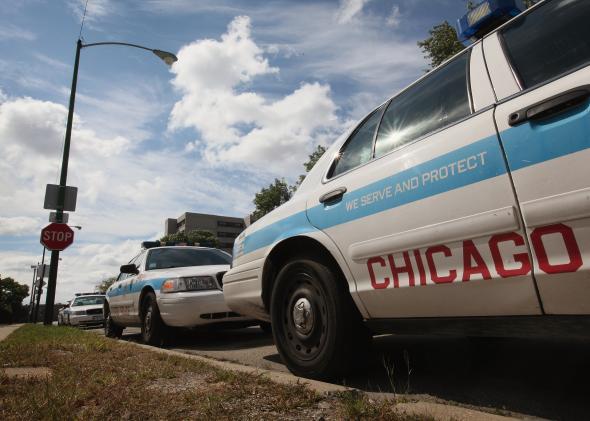An off-books Chicago police warehouse where a man mysteriously died two years ago is being used as an extraconstitutional interrogation site, according to a report published in the Guardian on Tuesday.
The newspaper spoke with one alleged former detainee at the site and several local attorneys who reported that the Homan Square compound was being used to deny detainees Fifth Amendment rights to due process and Sixth Amendment rights to an attorney.
In February 2013, a 44-year-old man named John Hubbard was reportedly found unresponsive inside an interview room at Homan Square and was soon after pronounced dead. The Guardian was unable to determine why Hubbard had been in custody, and the Cook County medical examiner did not provide it with any record of Hubbard’s cause of death.
The newspaper notes that it’s not uncommon for police to use facilities outside official police headquarters for discussions with informants, but that a special site where interrogations are conducted with people being held without due process is not the norm.
“This Homan Square revelation seems to me to be an institutionalization of the practice that dates back more than 40 years of violating a suspect or witness’ rights to a lawyer and not to be physically or otherwise coerced into giving a statement,” Chicago civil rights attorney Flint Taylor told the Guardian.
While it lists multiple examples of alleged unlawful detentions of anonymous detainees, the story centers on the case of Brian Jacob Church, a protester who was eventually acquitted on terrorism charges and convicted of possessing an incendiary device and participating in a mob action.
Church told the Guardian that he was brought to Homan Square on May 16, 2012, after a raid on his NATO protest group and handcuffed to a bench and interrogated for 17 hours without being read his rights or given access to an attorney.
“Essentially, I wasn’t allowed to make any contact with anybody,” Church told the Guardian.
Church’s lawyer, Sarah Gelsomino, said that it took 12 hours of active searching and calls to political connections in the mayor’s office before she was able to learn of the detention center and reach her client, who was then booked and processed.
The Guardian reports that detainees at Homan Square are not only detained without charge, they are not entered into any public record that shows that they were in police custody at Homan Square. More from the paper:
Three attorneys interviewed by the Guardian report being personally turned away from Homan Square between 2009 and 2013 without being allowed access to their clients. Two more lawyers who hadn’t been physically denied described it as a place where police withheld information about their clients’ whereabouts. Church was the only person who had been detained at the facility who agreed to talk with the Guardian: their lawyers say others fear police retaliation.
One man in January 2013 had his name changed in the Chicago central bookings database and then taken to Homan Square without a record of his transfer being kept, according to Eliza Solowiej of Chicago’s First Defense Legal Aid. (The man, the Guardian understands, wishes to be anonymous; his current attorney declined to confirm Solowiej’s account.) She found out where he was after he was taken to the hospital with a head injury.
“It’s sort of an open secret among attorneys that regularly make police station visits, this place—if you can’t find a client in the system, odds are they’re there,” Chicago lawyer Julia Bartmes told the Guardian.
